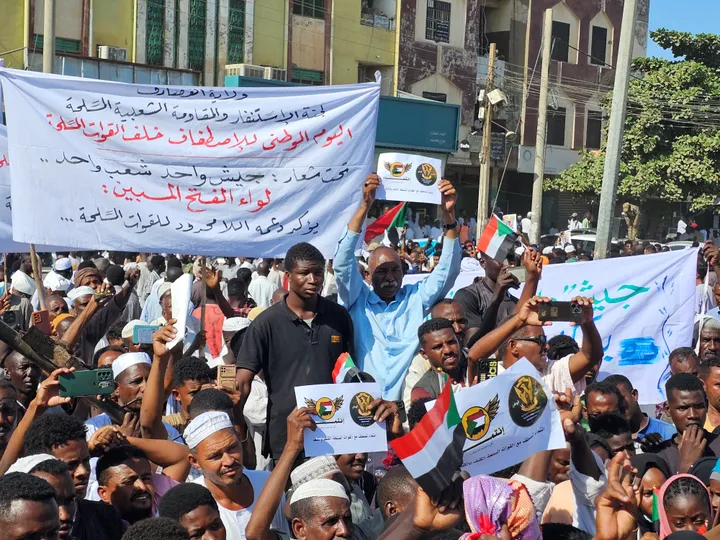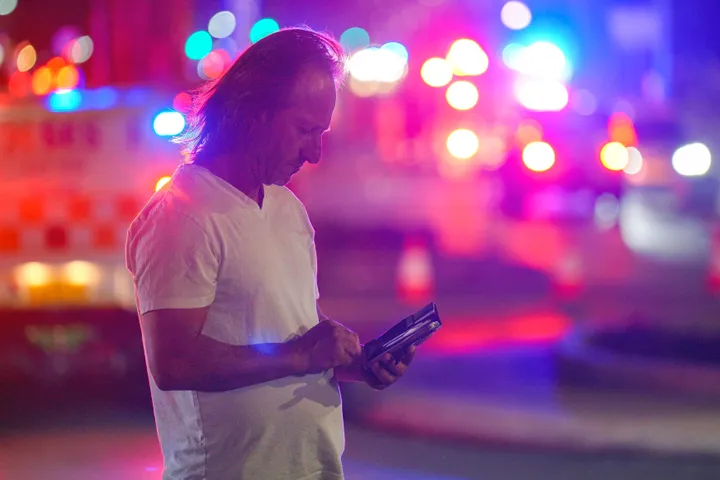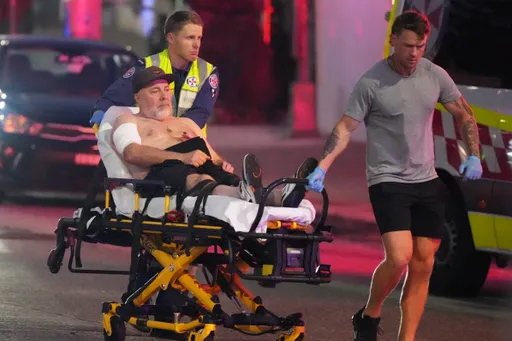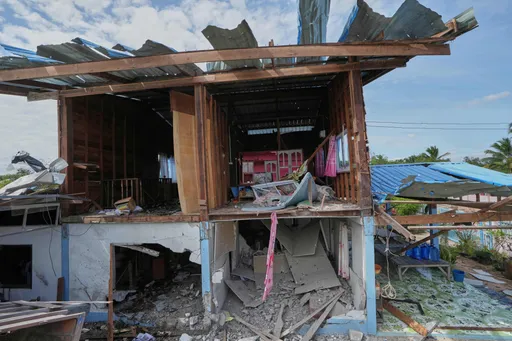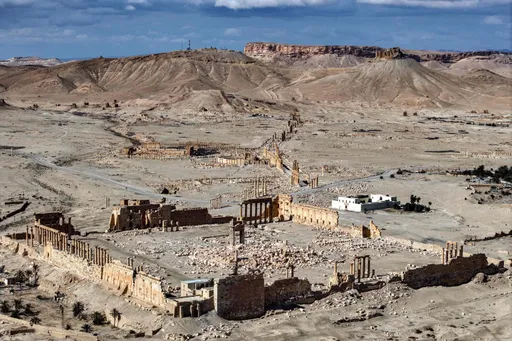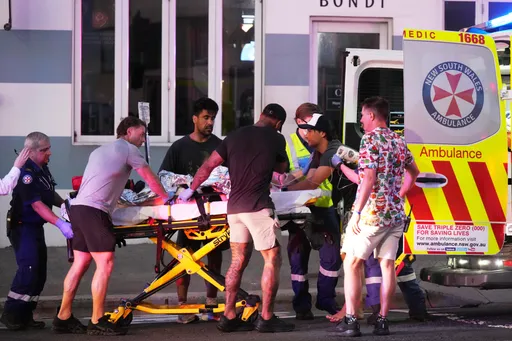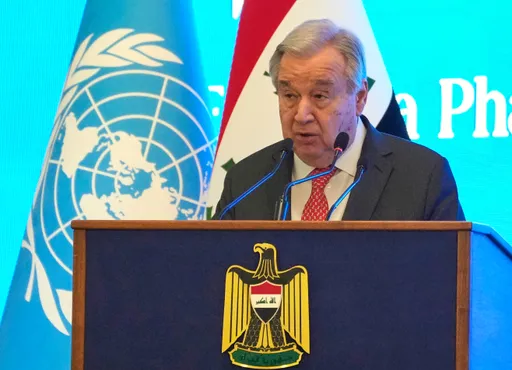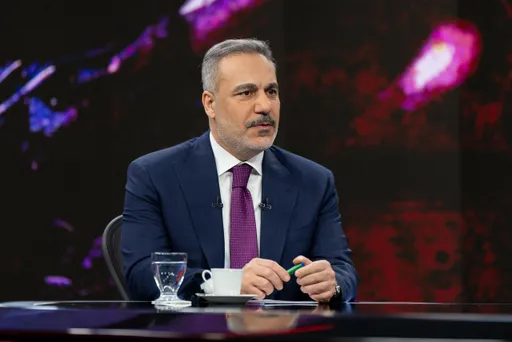Beijing says it will not "sit on its hands" if the situation in Hong Kong continues to deteriorate. The statement from China's ambassador to the UK comes after more than two months of near-daily street protests in the semi-autonomous territory triggered by an extradition bill.
Liu Xiaoming said on Thursday extremists were masquerading as anti-Beijing activists and were dragging Hong Kong "down a dangerous road".
He told a news conference in London that the central government "would not sit on its hands and watch" if unrest becomes "uncontrollable".
"We have enough solutions and enough power within the limit of the basic law to quell any unrest swiftly," he said, referring to Hong Kong's mini-constitution adopted after the former British colony was handed over to China in 1997.
"We hope this will end in an orderly way. In the meantime, we are fully prepared for the worst," he said.
Protests demanding greater rights and freedom from Beijing rule that began in early June have paralysed parts of the territory, including its international airport, and led to hundreds of arrests.
Liu would not go into detail about what measures Beijing might take or when the situation might be judged to be out of control. Beijing has not ruled out sending in troops, although most observers consider that unlikely.
He also told other countries to stop meddling.
"We cannot accept any interference in Hong Kong's internal affairs," he said.
China has provided few concrete examples of alleged foreign meddling.
Flights have mostly resumed after being halted by mass demonstrations and spasms of violence at the airport on Monday and Tuesday.
Protests continue
Police made five arrests Tuesday night and 17 more on Wednesday during clashes outside police stations in the Sham Shui Po district.
Protesters displayed laser pointers and burned spirit paper in recognition of the lunar calendar's traditional Hungry Ghost Festival, but police spokesman Tse Chun-Chung said some also used catapults to fire metal balls and marbles at police. Officers responded with tear gas and "minimal use of force", he said.
Police also maintained airport checkpoints and restricted access to the facilities to those with travel documents, Tse said at a daily news briefing.
While acknowledging some complaints about the use of tear gas and other aggressive police tactics in residential areas, Tse said police never wish to take such measures and do so only when "appropriate."
"We hope everybody will join us in restoring and order in society," Tse said.
This week's clashes highlighted the hardening positions of anti-Beijing protesters and the authorities, which show no sign of abating as long as the government continues to refuse calls for dialogue.
Along with scrapping the extradition legislation, under which criminal suspects could be tried in mainland China, and critics say, face torture and an unfair justice, protesters are demanding an investigation into alleged police abuses and other steps, with some calling also for the resignation of Chief Executive Carrie Lam.
Economic cost
That's also having an effect on what is already a difficult economic situation for the financial services and export hub, with the forecast for economic growth for the year downgraded from 1 percent to 0 percent, city Financial Secretary Paul Chan announced Thursday. This would be the worst performance since 2009 during the global financial crisis.
Hong Kong's government announced tax cuts and higher social spending to reverse a deepening economic slump, aggravated by anti-Beijing protests and the US-Chinese tariff war.
Growth was already declining before protests erupted this year.
"Domestically, the recent social incidents have hit the retail trade, restaurants, and tourism, adding a further blow to an already weak economy, and also affected the international image of Hong Kong," Chan said.
A total of 29 countries have issued travel safety alerts for Hong Kong, while international credit rating agencies have also expressed concern about the situation in the territory, he said.
"The incentives of tourists travelling to Hong Kong and of businessmen abroad operating business and investing in Hong Kong have been affected," Chan said.
While the movement's supporters plan street protests for the weekend, it's unclear what their next move is.
More than 700 protesters have been arrested since protests began in the territory of 7.5 million in early June. Police and the government have pledged to bring all "culprits" to justice and to take "relentless enforcement action to bring the persons involved to justice".
Hong Kong airline Cathay Pacific said it had cancelled 272 flights, affecting more than 55,000 passengers, and had fired two pilots in an apparent response to their involvement in activity related to the pro-democracy protests. They included one pilot who is "currently involved in legal proceedings."
The airline said earlier this week one of its pilots has been charged with rioting after being arrested during a protest.
It said the second fired pilot "misused company information", but gave no other details. The Hong Kong Free Press reported the pilot posted a photo of a cockpit screen on an online forum used by protesters.
The protests and airport disruptions are being fed in large part by frustrations among many Hong Kong residents over what they see as an increasing erosion of the freedoms they were promised in 1997 when Communist Party-ruled mainland China took over the former British colony under the framework of "one country, two systems."
China began by censoring all news of the protests, but has in recent days taken to denigrating the protesters as criminals being manipulated by the US, Taiwan and other unnamed foreign powers.
However, while human rights groups, foreign governments and many members of the US Congress have expressed concern over the events in Hong Kong, President Donald Trump has taken an almost cavalier attitude, calling the protests "riots" and saying they were solely a Chinese affair.
On Thursday, Trump tweeted that he knew Chinese leader Xi Jinping "very well".
"He is a great leader who very much has the respect of his people. He is also a good man in a 'tough business,'" Trump tweeted. "I have ZERO doubt that if President Xi wants to quickly and humanely solve the Hong Kong problem, he can do it."
Later on Thursday, Trump urged Xi to meet with demonstrators, while US National Security Advisor John Bolton warned Beijing against creating a "new" Tiananmen Square in Hong Kong, referring to the deadly 1989 crackdown on protesters in Beijing.
Trump told reporters that he is "very concerned" over a possible crackdown, adding that if Xi "sat down with the protesters... I'll bet he'd work it out in 15 minutes."
Trump added: "I know it's not the kind of thing he does."
The US president also said he would be speaking with Xi "soon."
In a possibly hopeful sign for the opposition, a leader of an earlier protest movement imprisoned on public disorder charges was released on bail Thursday.
Benny Tai was sentenced to 16 months in April as one of nine leaders put on trial for their part in a 2014 drive for universal suffrage known as the Umbrella Movement.
He was allowed to return home on $12,755 bail, but was barred from leaving Hong Kong and will have his appeal heard in late February, according to the court.
The 2014 movement fizzled, its demands ignored by Hong Kong's Beijing-backed administration and its leaders arrested.
However, it laid the groundwork for the new protest movement that began in June with mass opposition to extradition legislation but has since encompassed more sweeping democratic demands.


